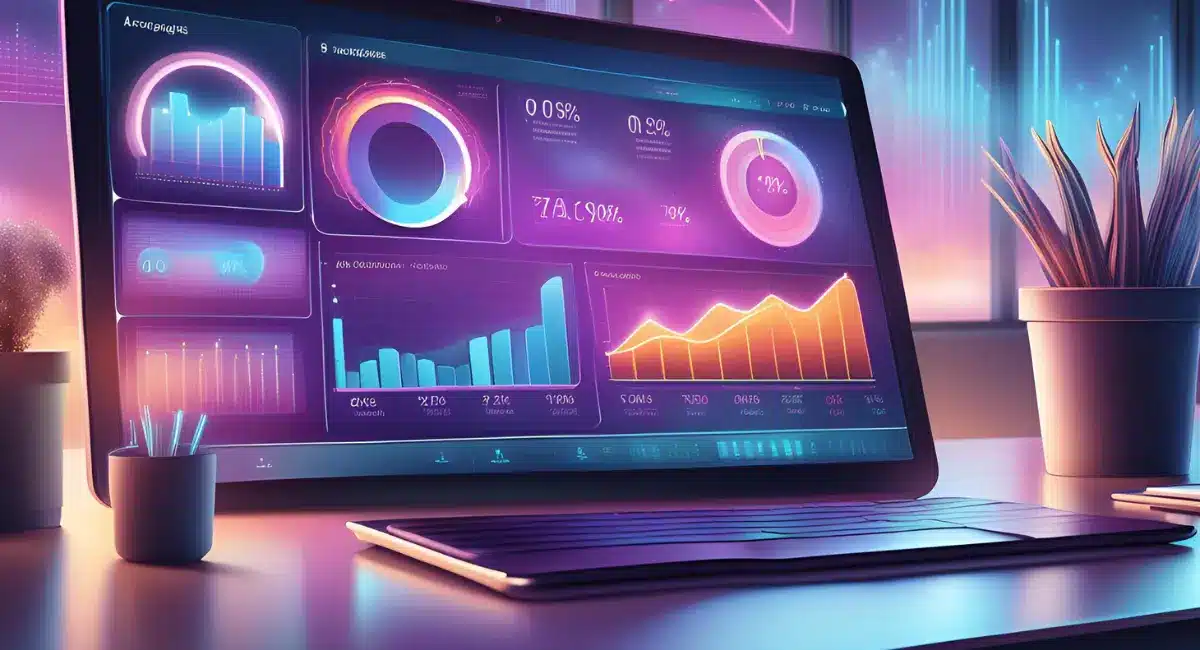Managing business finances requires choosing the right software, whether it’s an ERP (Enterprise Resource Planning) system or accounting software. Understanding their differences is essential in selecting the best solution for your needs.
Accounting software, like HashMicro, focuses on financial transactions, bookkeeping, and tax management. It includes general ledger, accounts payable and receivable, bank reconciliation, and financial reporting. While it streamlines financial processes, its scope remains limited to accounting functions.
On the other hand, ERP software offers a broader range of functionalities beyond financial management. It integrates supply chain, inventory, customer relationships, HR, and more into a centralized system. Businesses needing an all-in-one solution for multiple operations may find ERP more suitable for improving departmental efficiency and coordination.
Table of Contents

Benefits of ERP Over Accounting Software
When it comes to managing your business, ERP software offers numerous advantages over traditional accounting software. With ERP solutions, you gain access to a centralized database that acts as a single source of truth for all your business data. This ensures accuracy and allows for improved decision-making and planning through the advanced reporting and analytics capabilities of ERP system.
One key benefit of ERP software is its ability to streamline operations and enhance collaboration within your organization. By automating core business processes across different departments and business units, ERP software improves efficiency and promotes a seamless flow of information. Integrating functions, such as inventory management, procurement, manufacturing, and CRM, helps manage workflows and improves coordination across teams.
Furthermore, ERP solutions offer scalability, transparency, and operational efficiency for businesses of all sizes. ERP software provides a robust foundation for growth and expansion by allowing businesses to adapt to changing needs. By leveraging the power of ERP, you can gain a competitive edge in your industry and effectively meet your customers’ demands.
Overall, the benefits of ERP over accounting software are clear. It offers a comprehensive approach to managing your business processes, providing you with a complete view of your operations and enabling you to make informed decisions. Whether you’re a small business or a large enterprise, implementing an ERP solution can transform the way you operate and help you achieve your business goals.
Choosing Between ERP and Accounting Software
When deciding between ERP and accounting software for your business, it’s crucial to consider your specific needs and requirements carefully. Accounting software is well-suited for small businesses with basic financial management needs. It offers a cost-effective solution that is easy to set up and learn. However, it has limitations in functionality and scalability as your business grows.
On the other hand, an ERP system is the ideal choice for businesses that require integrated and comprehensive solutions to manage various business processes. In addition to financial management, ERP software offers extensive functionalities such as inventory management, supply chain management, customer relationship management, and more. This provides a scalable and flexible solution that can adapt to the changing needs of your business.
When deciding between ERP and accounting software, consider the size and complexity of your business, industry-specific requirements, scalability, and long-term growth potential. While accounting software may be a suitable choice for small businesses with limited requirements, an ERP system provides the breadth and depth of functionalities needed for larger and more complex organizations.
If you are interested in learning more about ERP systems or AI accounting software that aligns with accounting principles and can be tailored to meet your business’s needs, click on the banner below to view HashMicro’s software pricing scheme.

The Differences Between ERP and Accounting Software
When comparing ERP (Enterprise Resource Planning) and accounting software, it’s important to understand their differences in terms of scope and capabilities. While both systems involve financial management and accounting processes, ERP software offers a more comprehensive solution that covers a wider range of business functions.
ERP software goes beyond accounting and includes modules for financial management, supply chain management, customer relationship management, production, HR, and more. This integration allows for better coordination and control across different departments within an organization.
On the other hand, accounting software focuses primarily on financial transactions, bookkeeping, and basic financial reporting. It is designed to handle day-to-day financial operations and provide a clear picture of an organization’s financial health. For example, if you run a construction business and everything is going well, but you are overwhelmed by managing your finances manually, you need accounting software, specifically construction accounting software.
One of the key distinctions between ERP and accounting software is the ability of ERP systems to offer integration tools. These tools enable critical processes to seamlessly connect across departments, creating a centralized view of the organization’s operations. This centralized view facilitates real-time decision-making and planning, as well as improved collaboration between different teams.
Another difference lies in the database structure. ERP software operates on a centralized and larger database, allowing for a comprehensive view of the organization’s data. In contrast, accounting software features are usually limited to a smaller, stand-alone database that handles only financial information.
Accounting software is often more affordable, easier to set up, and simpler to learn compared to the complexity of ERP systems. It is a suitable choice for small businesses with basic financial management needs. However, it lacks the scalability and functionality offered by ERP software.
The Future of ERP and Accounting Software
As technology continues to advance, the future of ERP and accounting software is constantly evolving. While accounting tools packages have traditionally been popular choices for small and mid-sized businesses, there is a growing demand for ERP solutions that offer both accounting functionality and operational functionality.
ERP systems provide a wide range of advantages and comprehensive features, making them increasingly sought after. One key advantage is the ability to access real-time data, enabling businesses to make informed decisions quickly. Additionally, ERP solutions offer mobility, allowing users to access crucial information on the go. This flexibility is essential in today’s fast-paced business environment.
If you want to try a comprehensive ERP system with accounting software integration, HashMicro offers a complete ERP system to suit your business needs. Try the free demo now!





















